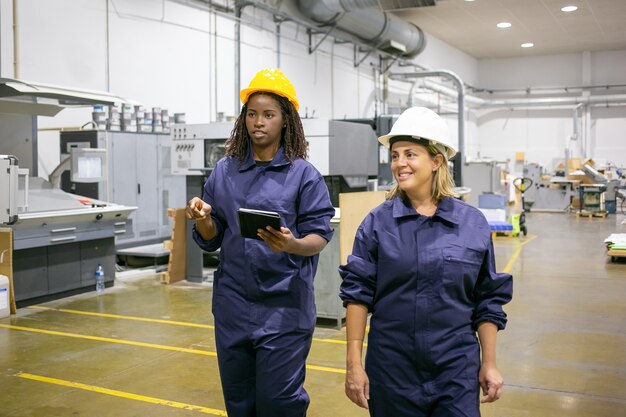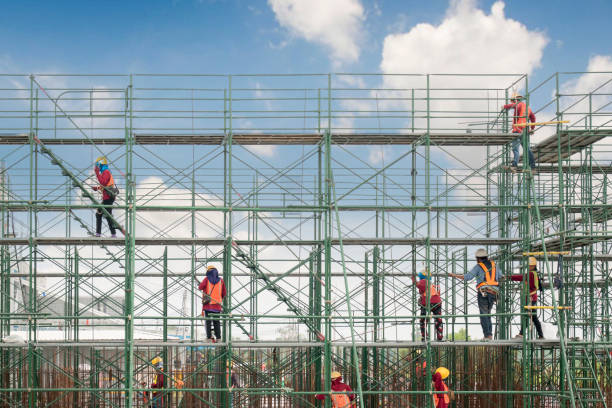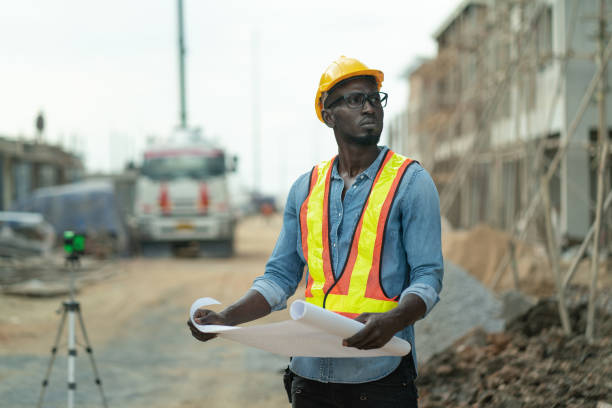Jobs In Canada
Construction Labourer Jobs in Canada – Skills, Salaries and Benefits
When the discussion takes a turn towards the construction labourer job market, it’s bound to generate a big buzz.
Let’s look at it from this perspective, without construction labourers, we wouldn’t have the amazing buildings and infrastructure that shape our cities and towns.
These professionals are not getting enough applaud but they are the heroes of the construction world, working hard to make sure everything gets built just right.
According to the latest stats from Job Bank, construction labourers are in high demand, with job opportunities expected to be pretty steady in the coming years.
This is talking about thousands of job openings across the country.
That’s a lot of potential for folks looking to get their foot into the door of the construction industry.
So, yeah, the role of construction labourers is much more important than many realise.
They’re the ones who do the heavy lifting, the digging, the operating of machinery and basically, they’re the backbone of any construction project.
And when we say that their skills are crucial for keeping things running smoothly on the worksite, trust me, it’s super crucial.
Job Descriptions
There are several different types of construction labourer jobs, each with specific responsibilities and duties.
Here are a few common types of construction labourer jobs you might come across:
General Construction Labourer: These individuals perform a wide range of tasks, including loading and unloading materials, digging trenches, operating machinery, and assisting with various construction activities.
Skilled Construction Labourer: Skilled labourers often have specialised training in specific tasks such as concrete work, carpentry, or equipment operation. They may also be responsible for more complex tasks like setting up scaffolding or assisting with structural work.
Highway Maintenance Worker: These labourers focus on maintaining and repairing roadways, highways, and bridges. They perform tasks such as repairing guardrails, clearing debris, and maintaining drainage systems.
As for the responsibilities and duties of construction labourers, they can vary depending on the specific job, but some common tasks include:
- Assisting with the setup and preparation of construction sites
- Operating a variety of hand and power tools
- Loading and unloading construction materials
- Performing basic carpentry, concrete, or masonry work
- Clearing debris and maintaining a clean and safe work environment
- Following safety protocols and regulations to prevent accidents
- Communicating effectively with team members and supervisors
Job Skills and Requirements
For construction labourer jobs, there are specific hard and soft skills that are usually required to excel in the role.
Hard Skills:
Operating Machinery: Being skilled in operating construction equipment such as forklifts, excavators, and power tools is essential for many construction labourer positions.
Reading Blueprints: Understanding how to read and interpret construction blueprints and technical drawings is valuable for executing tasks accurately and efficiently.
Carpentry Skills: Basic knowledge of carpentry principles, including measuring, cutting, and installing materials, is often required.
Concrete Work: Proficiency in concrete tasks such as mixing, pouring, and finishing is beneficial in many construction settings.
Demolition Techniques: Understanding how to safely and effectively perform demolition work, including dismantling structures and removing debris, is often necessary.
Soft Skills:
Teamwork: Construction labourers frequently work as part of a team, so strong teamwork and collaboration skills are crucial for success.
Attention to Detail: Being detail-oriented is important for following construction plans precisely and maintaining a high level of quality in the work.
Physical Stamina: The ability to perform physically demanding tasks for extended periods and to work in various weather conditions is a key requirement.
Communication: Effective communication skills, including the ability to follow instructions and communicate with coworkers and supervisors, are highly valued.
Safety Consciousness: Prioritizing safety at all times and adhering to safety procedures and regulations is essential for preventing accidents and maintaining a secure work environment.
Job Salary and Benefits
In Canada, the average salary for construction labourers can vary by location, experience, and the specific nature of the work.
Generally, the average annual salary for construction labourers in Canada is around $45,000.
However, this figure can be higher or lower based on factors such as the province or territory in which the work is being carried out and the level of experience the worker has.
Benefits for construction labourers in Canada may include healthcare coverage, retirement plans, paid time off, and sometimes additional benefits such as bonuses or tool allowances.
These benefits can also differ based on the specific employer and collective bargaining agreements in place.
In regards to career progression, there are several opportunities for advancement within the construction industry in Canada.
Construction labourers who gain experience and develop their skills may have the chance to move into more specialised roles, such as carpentry, masonry, or equipment operation.
Further training and certification can also lead to advancement opportunities, such as becoming construction supervisors, project managers, or pursuing entrepreneurship by starting their own construction businesses.
Frequently Asked Questions
Q: What skills and qualifications are needed to become a construction labourer?
A: While formal education is not always required, construction labourers often benefit from having a high school diploma or equivalent. Physical strength, manual dexterity, and the ability to work in various weather conditions are essential.
Basic knowledge of construction and safety protocols, as well as the ability to follow instructions and work as part of a team, are highly valuable.
Q: What are the typical work hours for a construction labourer?
A: Construction labourers often work full-time hours, which can vary based on the specific project and the season. They may also work evenings, weekends, or overtime to meet project deadlines. Construction work is often dependent on weather conditions and may require flexibility in scheduling.
Q: What are the potential hazards and safety considerations in this job?
Construction labourers face various hazards, including heavy machinery, electrical equipment, falling objects, and exposure to noise and chemicals. Adherence to safety regulations, proper use of personal protective equipment, and awareness of potential hazards are crucial for preventing accidents and injuries on the job.
Final Thoughts
In conclusion, the construction labourer job market offers a vital and diverse range of opportunities for those interested in pursuing a career in the industry.
With various job descriptions, skills and requirements, salary and benefits, and answers to common queries, it’s clear that construction labourers have a crucial part to play in shaping the environment we live in.
For those considering this path, you are encouraged to explore further resources to gain a deeper understanding of this dynamic field.
Whether you’re just starting out or seeking career progression, there are countless opportunities waiting for you in the construction industry.








